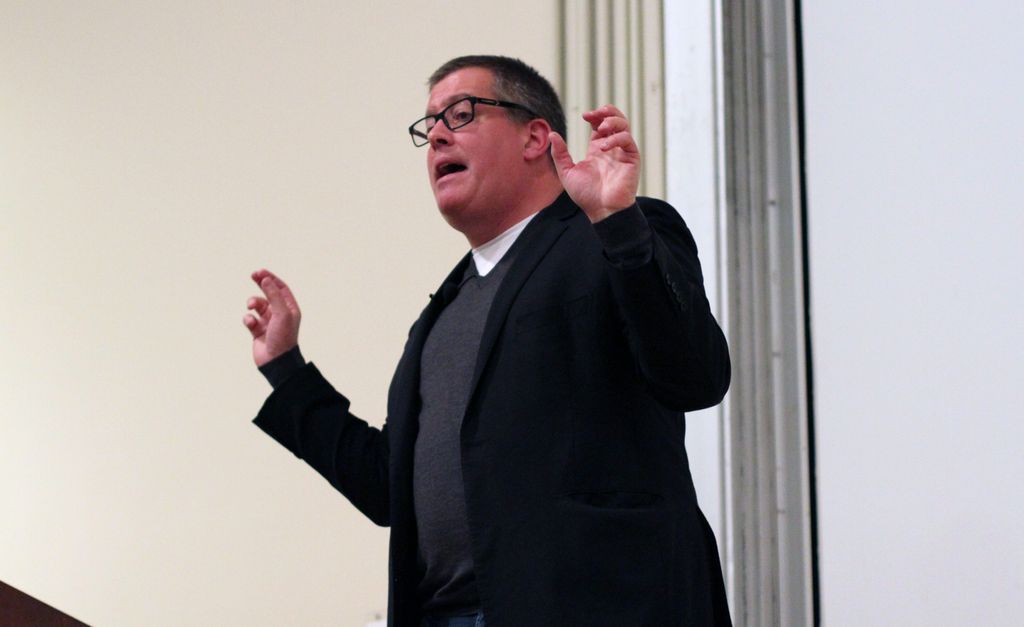Stanley P. Stone Distinguished Lecture: Peter Shankman (CGS’92, COM’94)
Channeling the Power of a “Faster Than Normal” Brain
Before Peter Shankman (CGS’92, COM’94) started his lecture, he took a moment to remember the last time he was in the Jacob Sleeper Auditorium at Boston University College of General Studies— as a college student who was failing, on academic probation, and facing the threat of expulsion five semesters in a row. Now, he was standing on the stage as a five-time bestselling author, a CEO, an entrepreneur, and a person who’s learned to harness the power of a brain that works “faster than normal.” The author of Faster than Normal: Turbocharge Your Focus, Productivity, and Success with the Secrets of the ADHD Brain, Shankman spoke to the audience about how neuroatypical people can take what makes them different and use it as a strength.
“You’re not broken,” he told the audience, many of whom raised their hands when he asked who’d been diagnosed with attention deficit hyperactivity disorder (ADHD). “You’re actually better. … You can’t spend your life letting other people live in your head rent-free.”

Drawing from his experience founding Help a Reporter Out (HARO), he said over the next few decades, company success will be driven by the customer experience. Customers will believe the warm recommendation of someone else before they’ll buy what a company says about itself. He gave advice for the audience’s aspiring entrepreneurs and professionals: to be transparent, to give your audience the information they want in the way they want it, to recognize that brevity is good communication, and to build trust in relationships before you need something.
“People with resources tend to distribute opportunities to people they trust,” he said, and you build that trust by reaching out and asking how you can help before you have something to sell.
To the neuroatypical people in the crowd, he gave the rules he follows in his own life to help him manage his ADHD and avoid the triggers that can send him into a spiral. It all starts with taking care of yourself, he said: “You can’t change the world if you’re not taking care of yourself first.” For Shankman, this means exercising to produce the dopamine, seratonin, and adrenaline that people with ADHD produce in smaller amounts– even if it means going to sleep in his exercise clothes and waking up at 3:45 AM.
He closed on an encouraging note: “What you consider a defect now is going to be your greatest gift.”
People who missed the event can watch a video of the livestream or read a Q&A published in BU Today. The event was part of the Stanley P. Stone Distinguished Lecture Series, an annual series that brings notable, inspiring speakers to CGS, inviting the CGS and BU community to broaden their educational experience. The lectures are free and open to the public thanks to the generous support of Stanley P. Stone (CGS’64, Questrom’66).